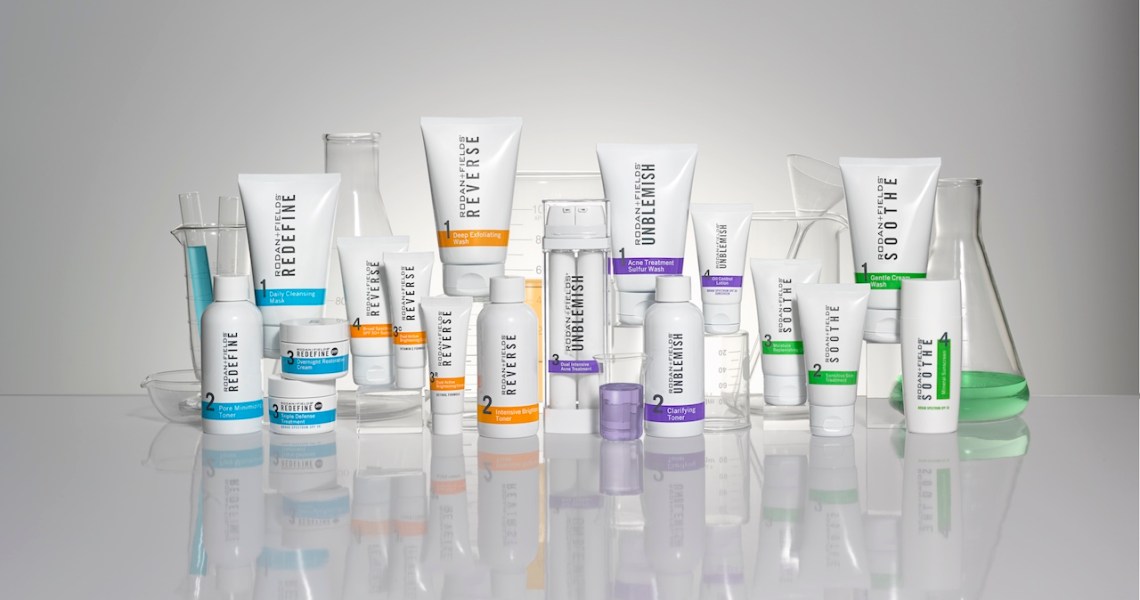Skin-care brand Rodan & Fields has launched a new program, called Concept to Commerce, to solicit new product development ideas.
Rodan & Fields, launched in 2002 by dermatologists Dr. Katie Rodan and Dr. Kathy Fields, follows a multi-level marketing model with over 300,000 sellers. It generated $1.5 billion in sales in 2017, and in April 2018, market research firm Euromonitor International ranked it the No. 1 skin-care brand in the U.S. Through its latest program that launched earlier this month, the brand is looking for submissions from its beauty community that solve dermatological, cosmetic skin care or other personal-care concerns and include active ingredients, formulated products, tools and devices.
“Typically, our business development team reaches out [to businesses], but we realized that 90% of what’s going on out there, we don’t know about,” said Dr. Tim Falla, chief scientific officer of Rodan & Fields. “What we do know is that we can invent and develop tech ourselves, or we can realize we aren’t experts in every aspect of skin care and chemistry and there are a lot of academics and small brands that have technologies that can be applied to skin care.”
The application for Concept to Commerce is fairly straightforward. The two-part application consists of contact information followed by a page to submit a proposal idea and any supporting documents on RodanandFields.com. Ownership models, such as licensing versus patent purchase, and compensation will be determined on a case-by-case basis, said Falla.
Rodan & Fields is primarily interested in attracting people within highly technical or expert expertise, like chemistry and dermatology, versus opening itself up to more customer-driven ideas. The reason for this is that the company wants to focus more on technical solutions, innovative ingredients and delivery mechanisms — something at the root of brand’s DNA, Falla said. However, he said the idea of crowdsourcing was “very compelling” and that the brand is exploring the idea of tapping into the public to help solve a specific skin-care problem in the future. It also allows Rodan & Fields to explore new categories such as at-home devices, said Sumita Butani, Rodan & Fields vp of product development.
Crowdsourcing is a popular tactic within beauty. Volition Beauty, founded in 2015, built its business around crowdsourcing product ideas. Glossier and Peach & Lily use emails, surveys and its social communities to solicit feedback from customers on upcoming products and then take that insight into consideration through development. Earlier this week, QVC and HSN announced its latest campaign to allow entrepreneurs to come to them and pitch their brands.
To bring attention to Concept to Commerce, Rodan & Fields is presenting it the program to various professional groups and conferences in hopes of getting it in front of the right audiences. In January, during a soft-launch phase, Rodan & Fields discussed the program at the Society for Cosmetic Chemists in New York City and received 40 submissions; the brand also discussed it at the American Academy of Dermatology’s annual conference in March in San Francisco. As a side benefit of Commerce to Concept, it not only introduces the company to new development ideas but also elevates its awareness.
“Rodan & Fields is a very big company but not one that everyone has heard of, so we are seeing that we are able to get in contact with people who didn’t know of us,” Falla said. “The win for the other side is that we have one of the largest distributions of skin care and can take something that is the nexus of an idea and bring it to a whole group of people. Academics love that.”




